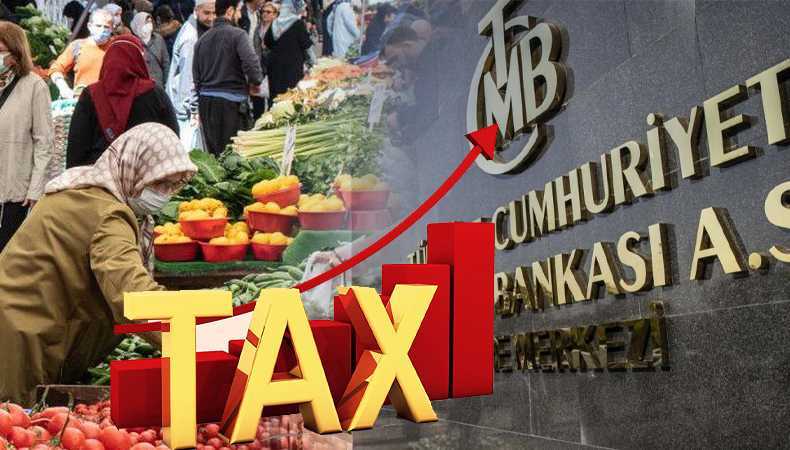Türkiye Delivers New Rate Hike to Tackle Inflation

The Central Bank of Turkey raised interest rates on Thursday. This was the second time in as many months that the bank raised its target range, and experts say it shows that the bank is sticking to traditional monetary policies.
In a statement, the bank’s monetary policy committee said it had decided to raise the benchmark interest rate (the one-week repo rate) by 250 basis points, to 17.5 percent. The committee also said that there is still a chance that there will be more rate increases this year.
According to the statement, the committee decided that monetary tightening needed to continue in order to set the economy on the path to deflation as quickly as possible, keep inflation expectations stable, and stop prices from getting worse.
According to what was said, monetary tightening will be increased as much as needed in a timely and gradual way until the outlook for inflation has improved significantly. This will keep happening until the outlook for inflation has improved significantly.
On June 22, the bank raised the interest rates by 6.5 percentage points, which brought the total to 15%. This was a step towards a more normal economy and a change from what President Recep Tayyip Erdogan had done before with low interest rates.
Mehmet Simsek, a well-known former banker, was named treasury and finance minister soon after the Turkish leader was re-elected at the end of May. This was done to try to get investors to trust Turkey again and bring more foreign investment into the country, which would help Turkey get more foreign currency. Hafize Gaye Erkan used to work as a bank manager in the United States. He was chosen to be the governor of the central bank.
Erdogan finished his tour of the Gulf Arab powers late Wednesday night. He did this to try to get investments and money for his country’s struggling economy.
Along with Saudi Arabia and Qatar, Turkey signed trade deals with the United Arab Emirates (UAE) on Wednesday. The deals are worth a total of more than 50 billion U.S. dollars. During the last leg of the trip, these deals were signed.
The new Turkish government’s economic team approved of the agreements despite the Turkish lira’s recent decline to record lows against the US dollar.
From an all-time high of 85.5 percent in October 2022, Turkey’s annual inflation rate fell to 38.2 percent in June. This means that the country’s inflation rate is getting better. On the other hand, analysts expect inflation to go up again after new taxes were added in July to help a budget that was tight because of costs related to the election.
Enver Erkan, chief economist at Istanbul’s Dinamik Investment Securities, told Xinhua that despite the efforts of the central bank, inflation is expected to persist in Turkey.
If the value of the lira keeps going down, the price of imported goods will go through the roof, which will make inflation go up overall. Erkan said that this is a big problem for Turkey because the country depends so much on goods from other countries.
Economists, on the other hand, thought that the central bank’s most recent rate hike wasn’t enough to fight inflation.
Erik Meyerson, Swedish bank SEB’s chief emerging markets strategist, tweeted that even a 350 basis point increase by the Turkish central bank would have been too little. That still wouldn’t have been enough.
He said that policymakers are once again trying to buy time instead of fixing problems. We’re back in this loop.
Emre Alkin, a well-known finance expert and scholar from Istanbul, said that the Turkish economy has less room for improvement.
Not only did the budget deficit break records, but so did short-term borrowing in foreign currency. In the first half of the year, the budget deficit was worth 18.6 billion dollars and the foreign debt was worth 207 billion dollars. He wrote on his blog on Tuesday that the foreign debt had reached this amount.
Alkin says that this shows that pressure on interest rates and the need for foreign currency won’t go away quickly.




